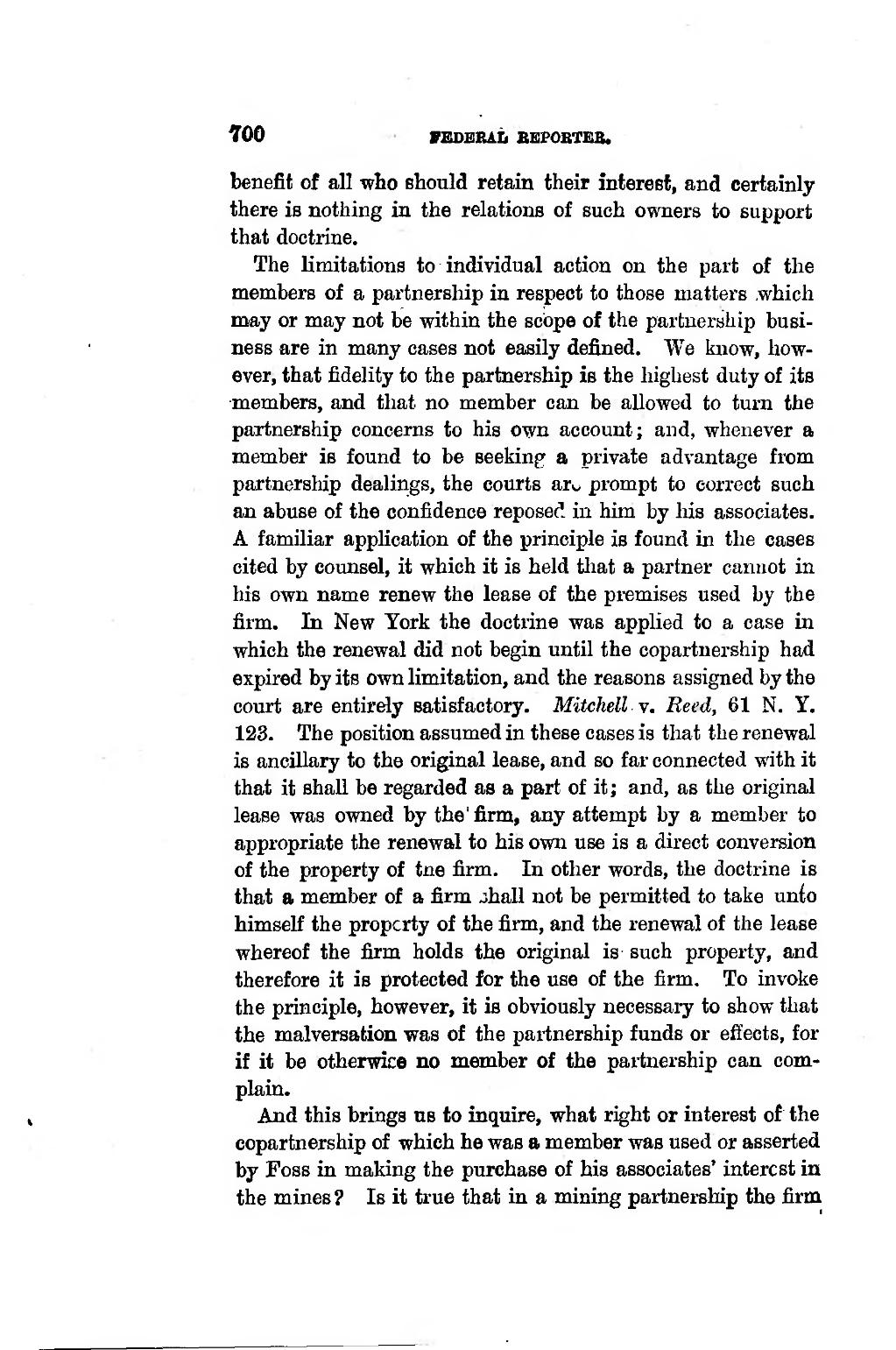100 VEOBRAti SEPOBTEB. �benefit of ail who should retain their interest, and certainly there is nothing in the relations of such owners to support that doctrine. �The limitations to individual action on the part of the members of a partnership in respect to those matters wbich may or may not be within the scope of the partnersliip busi- ness are in many cases not easily defined. We know, how- ever, that fidelity to the partnership is the higbest duty of its members, and that no member ean be allowed to turn the partnership concerns to bis own account; and, whenever a member is found to be seeking a private advantage from partnership dealings, the courts aru prompt to correct sucb an abuse of the confidence reposee! in him by bis associates. A familiar application of the principle is found in the cases cited by counsel, it which it is held that a partner caniiot in his own name renew the lease of the premises used by the firm. In New York the doctrine was applied to a case in which the renewal did not begin until the copartnership had expired by its own limitation, and the reasons assigned by the court are entirely satisfaetory. Mitchell y. Reed, 61 N. Y. 123. The position assumed in these cases is that the renewal is ancillary to the original lease, and so far connected with it that it shall be regarded as a part of it; and, as the original lease was owned by the' firm, any attempt by a member to appropriate the renewal to his own use is a direct conversion of the property of the firm. In other words, the doctrine is that a member of a firm jhall not be permitted to take unio himself the property of the firm, and the renewal of the lease whereof the firm holds the original is such property, and therefore it is protected for the use of the firm. To invoke the principle, however, it is obviously necessary to show that the malversation was of the partnership funds or effects, for if it be otherwice no member of the partnership can com- plain. �And this brings as to inquire, what right or interest of the copartnership of which he was a member was used or asserted by Foss in making the purchase of his associates' interest in the mines? Is it true that in a mining partnership the firm ����
